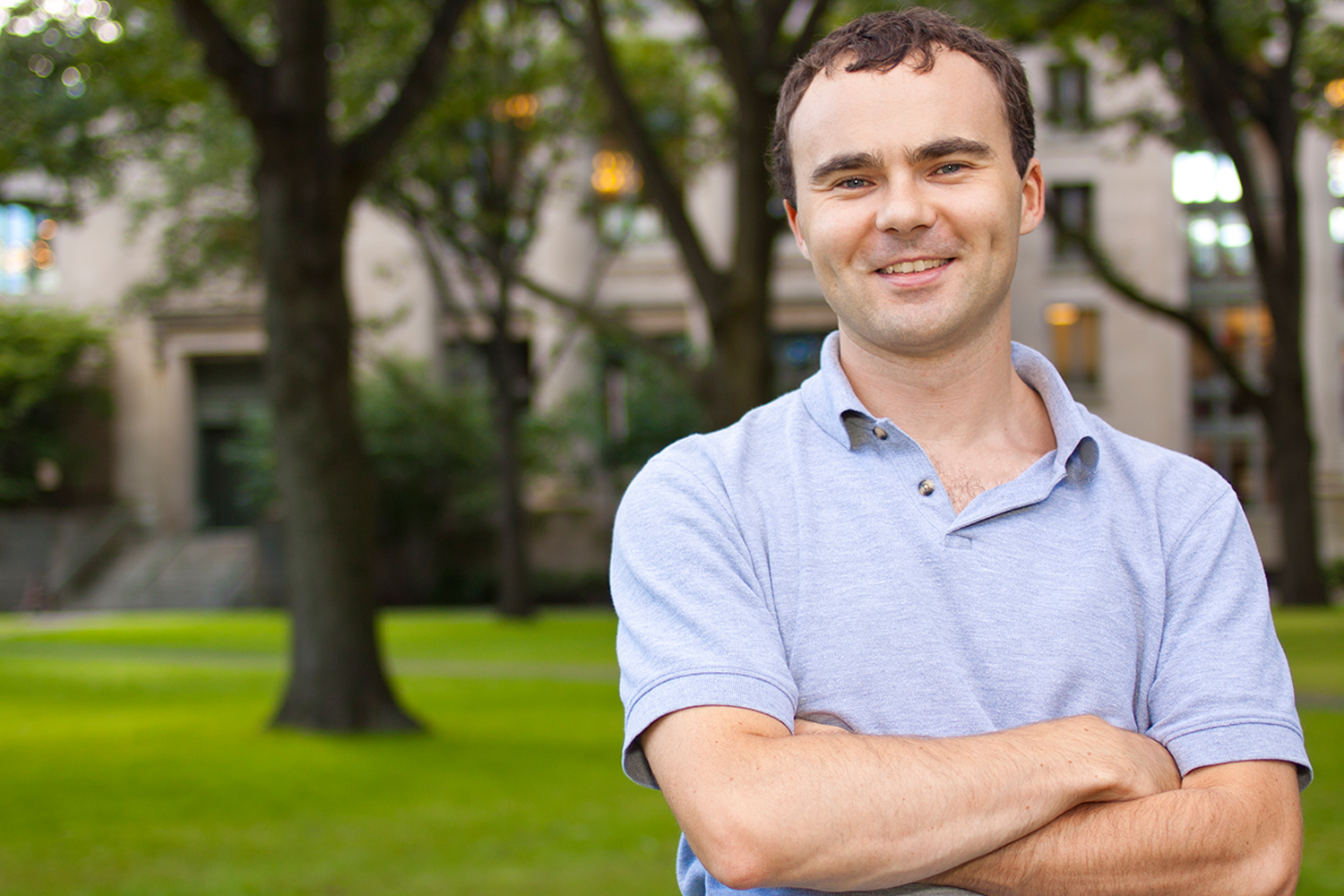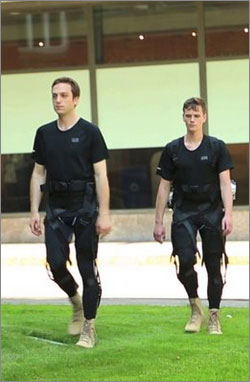Grant will support research on a soft wearable robotic glove to assist the disabled
(BOSTON and CAMBRIDGE) — Conor J. Walsh, Assistant Professor of Mechanical and Biomedical Engineering at Harvard School of Engineering and Applied Sciences (SEAS) and a Core Faculty member at Wyss Institute for Biologically Inspired Engineering at Harvard University, has been selected to receive a Faculty Early Career Development (CAREER) Award from the National Science Foundation (NSF). One of the most prestigious honors recognizing early-career scientists and engineers, the award will support Walsh’s research in the burgeoning field of soft wearable robotics.

The award is from NSF’s General and Age Related Disabilities Engineering (GARDE) program, which advances fundamental engineering research that will lead to the development of new technologies for persons with disabilities. Walsh’s work focuses on applying soft robotic systems to help individuals overcome disabilities, and to augment the performance of able-bodied people.
“Traditional robotic systems don’t translate easily from industrial settings to medical and home applications,” Walsh said. “One of the main reasons is because rigid components pose safety risks for people. We are overcoming that hurdle by designing soft robotic systems made of elastomers, fibers and textiles. A major aim of this work is to advance the state of the art of wearable robotics and intuitive human-robot interaction.”
“The $500,000 CAREER Award will enable Walsh and his team to pursue work on a lightweight, soft robotic glove that could become an alternative to a therapist manipulating a patient’s fingers and thumb to rehabilitate impaired hand function, or provide a patient with assistance in performing activities of daily living.
Walsh’s team will collaborate with clinical partners to test prototypes of the system on a variety of patients, such as those who have suffered a stroke or have muscular dystrophy.
“Conor’s work on soft wearable robotics has set a new paradigm for assistive systems through the design of devices that are fully compatible with humans,” said Wyss Institute Founding Director Donald Ingber, M.D., Ph.D. “It’s great to see the National Science Foundation honor Conor for his pioneering work in the field of robotics, which has been truly visionary.”
Walsh’s research lab at Harvard SEAS and the Wyss Institute leverages the Institute’s translational model for de_risking high_value technology by bringing together researchers from engineering, industrial design, apparel, clinical, and business communities to develop disruptive technologies that augment and restore human performance. His team is also developing a soft exosuit that can assist an individual with locomotion as part of the DARPA Warrior Web project. His group is also working on the modeling and design of fluidic-based soft robotics for cardiac applications and applying meso-scale manufacturing approaches to the design of smart medical tools for the minimally invasive diagnosis and treatment of disease.
A core aspect of Walsh’s research is a commitment to open-source dissemination of results. Last year, he and collaborators launched the Soft Robotics Toolkit, an online collection to assist users in the design, fabrication, modeling, characterization, and control of soft robotic devices. As part of his CAREER Award, Walsh will continue to add to instructional kits.

Through the Harvard Medical Device Innovation Initiative, which includes Medical Device Design, a course that Walsh started at SEAS, he provides student-innovators with the opportunity to solve critical medical problems. As part of his CAREER Award, Walsh will introduce cutting-edge soft robotics research topics into his class.
He received his undergraduate degree in Mechanical and Manufacturing Engineering from Trinity College in Dublin (2003), and a Master’s (2006) and Ph.D. (2010) in mechanical engineering from the Massachusetts Institute of Technology. He joined the SEAS faculty and became a Wyss Core Faculty member in 2012.
About the Faculty Early Career Development (CAREER) Program
The Faculty Early Career Development (CAREER) Program is a Foundation-wide activity that offers the NSF’s most prestigious awards in support of the early career-development activities of those teacher-scholars who most effectively integrate research and education within the context of the mission of their organization. Such activities should build a firm foundation for a lifetime of integrated contributions to research and education.